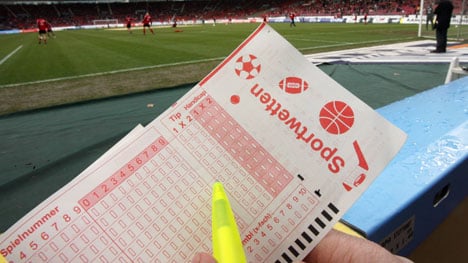“The accused are suspected of bribing players, coaches, referees and officials from high-ranking European football leagues to manipulate the results of games,” said a statement from prosecutors in the western city of Bochum.
The investigations, carried out with the European football association UEFA, have been ongoing since the beginning of 2009.
Prosecutors refused to answer questions when contacted by AFP, but did say that there would be a news conference Friday afternoon.
According to the daily Berliner Morgenpost, investigations have been launched into around 100 suspects involved in placing huge bets on allegedly fixed matches in the Turkish first flight.
Harald Stenger, a spokesman for the German Football Federation (DFB), said: “As far as the DFB knows, no German matches were affected.”
The Berliner Morgenpost cited one top investigator as saying the probe could result in “one of the biggest scandals in the history of professional football.”
“This earthquake will shake the credibility of the sport for a long time,” the paper quoted the investigator as saying.
The ring reportedly placed enormous bets with Asian bookmakers and Turkish international players were said to be involved in the fraud. The accused are primarily Kosovars, Spiegel TV reported.
German football is still recovering from a scandal in 2004, when referee Robert Hoyzer admitting to rigging matches for a Croatian mafia ring.
The matches concerned were mainly in the German second and third division, but a German Cup match between first division Hamburger SV and third division Paderborn as well as a first division match in Turkey were also affected.
Hoyzer, who said he was given €70,000 ($104,000) for fixing matches, received death threats after admitting his guilt on television. He was sentenced to serve two years and five months in prison but was released after serving only half that.
In 2008, Berlin was rocked by further allegations that the 2006 World Cup knock-out stage match between Brazil and Ghana was influenced by an Asian betting syndicate. Der Spiegel magazine reported that large sums of money had been bet on Brazil winning by at least two goals and a former Ghana international acted as an intermediary.




 Please whitelist us to continue reading.
Please whitelist us to continue reading.
Member comments